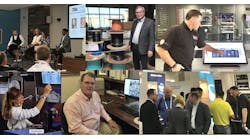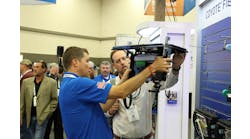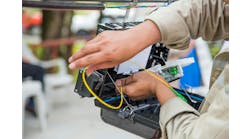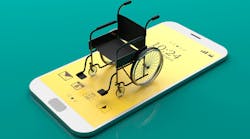Latest from Professional Development/Leadership
Revolutionizing Assistive Technology for the Elderly and Disabled
PLUS: Solution Offers Individuals With Dementia the Ability to Stay Connected With Family During the Pandemic
A recent survey from AARP found that older adults increased technology purchases during the COVID-19 pandemic, but more than half said they needed a better grasp of the devices they purchased. In addition, 37% admitted they weren’t confident about even using the technology.
Imagine a senior with dementia or early onset Alzheimer’s. There’s no doubt that there’s a great deal of confusion and frustration with trying to make or answer a call—not to mention the constant worry loved ones have that their senior relatives may get taken advantage of by spammers or robocalls.
RAZ Mobility offers unique and cutting-edge mobile assistive technology solutions for seniors and people with disabilities. These solutions take the form of mobile applications, mobile devices, or software bundled with mobile devices.
To find more information about the AARP survey Older Adults Are Upgrading Tech for a Better Online Experience, please visit (aarp.org).
RAZ Mobility Offers Individuals With Dementia the Ability to Stay Connected With Family During the Pandemic
RAZ Mobility, a provider of mobile assistive technology, announced results of its latest industry survey regarding the impact of COVID-19 on family visits to seniors with dementia, and the use of phones to bridge the communication gap. Now more than ever, families are forced to rely on phones to stay connected to help reduce the social isolation experienced by seniors with dementia. However, they face significant challenges when using their phone. For example, most individuals with memory loss have difficulty making a call and many accept calls from spammers.
The online survey was presented to more than 250 caregivers, healthcare workers and individuals with family members suffering from dementia in the first week of October. It was designed to gain a better understanding about the needs of these individuals when it comes to staying in contact with family members and caregivers.
- According to survey results, 48.5% of respondents see their senior with dementia significantly less because of COVID-related visitation restrictions or out-of-fear of infecting their loved one.
- The significant majority of respondents said their family members with dementia or Alzheimer’s use a mobile phone or a home phone (landline).
- Of the 41% of respondents that say their family member with dementia or Alzheimer’s use phones, 49% said they frequently have difficulties using the phone and 8% have difficulties some of the time.
- The top two challenges reported by those respondents include 51% having difficulty dialing phone numbers, and 49% getting confused and dialing phone numbers late at night.
“While there is a large number of individuals with dementia and Alzheimer’s using a phone as their main form of communication, there are still many challenges they experience when trying to navigate the technology," said Robert Felgar, CEO of RAZ Mobility. "The RAZ Memory Cell Phone specifically addresses the needs and challenges faced by seniors with dementia when using their mobile device."
About RAZ Mobility: RAZ Mobility offers unique and cutting-edge mobile assistive technology solutions for people with disabilities. These solutions take the form of mobile devices or mobile applications. RAZ Mobility views itself as an agent for change, dedicated to ensuring that people with disabilities benefit from the dramatic progress and evolution in mobile technology. RAZ Mobility offers its solutions directly to consumers, as well as to government departments and agencies, such as the United States Department of Veterans Affairs. Learn more about RAZ Mobility at www.razmobility.com.




